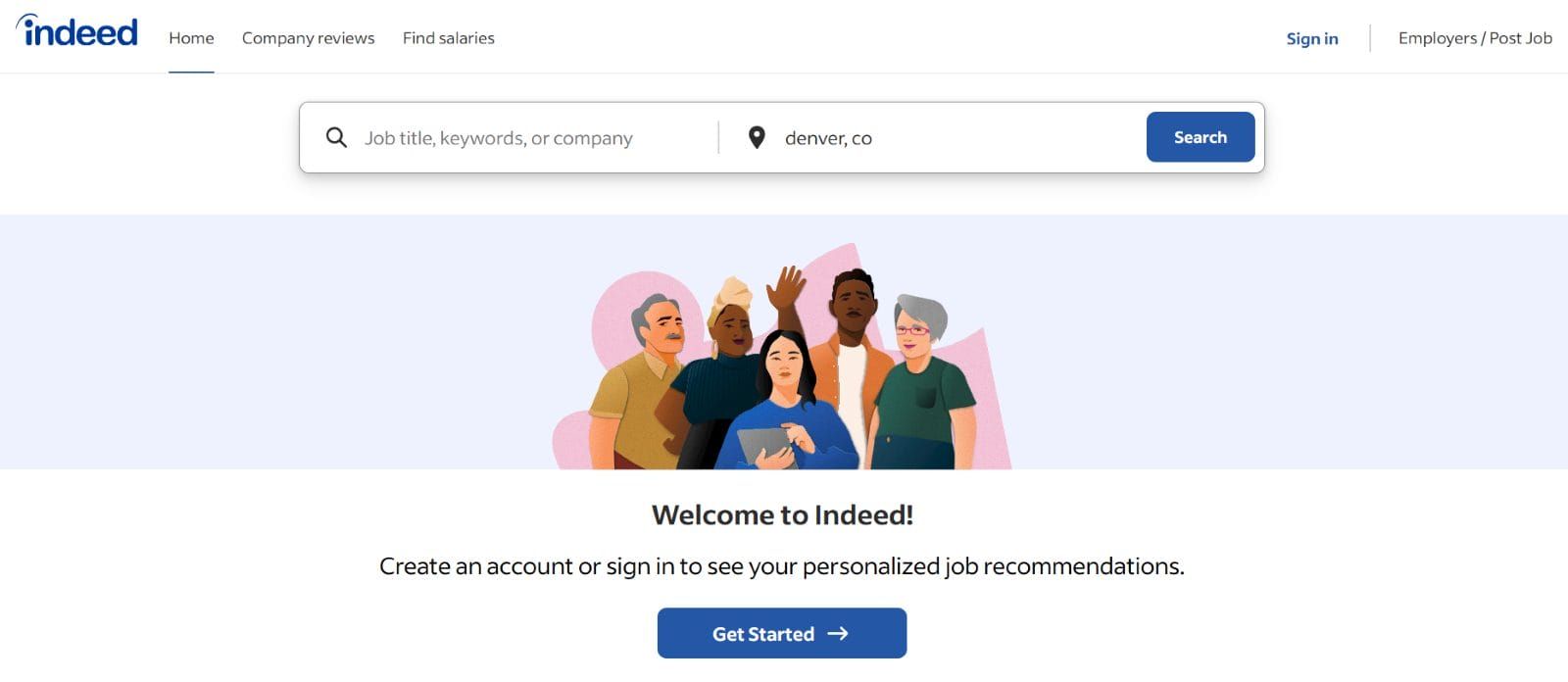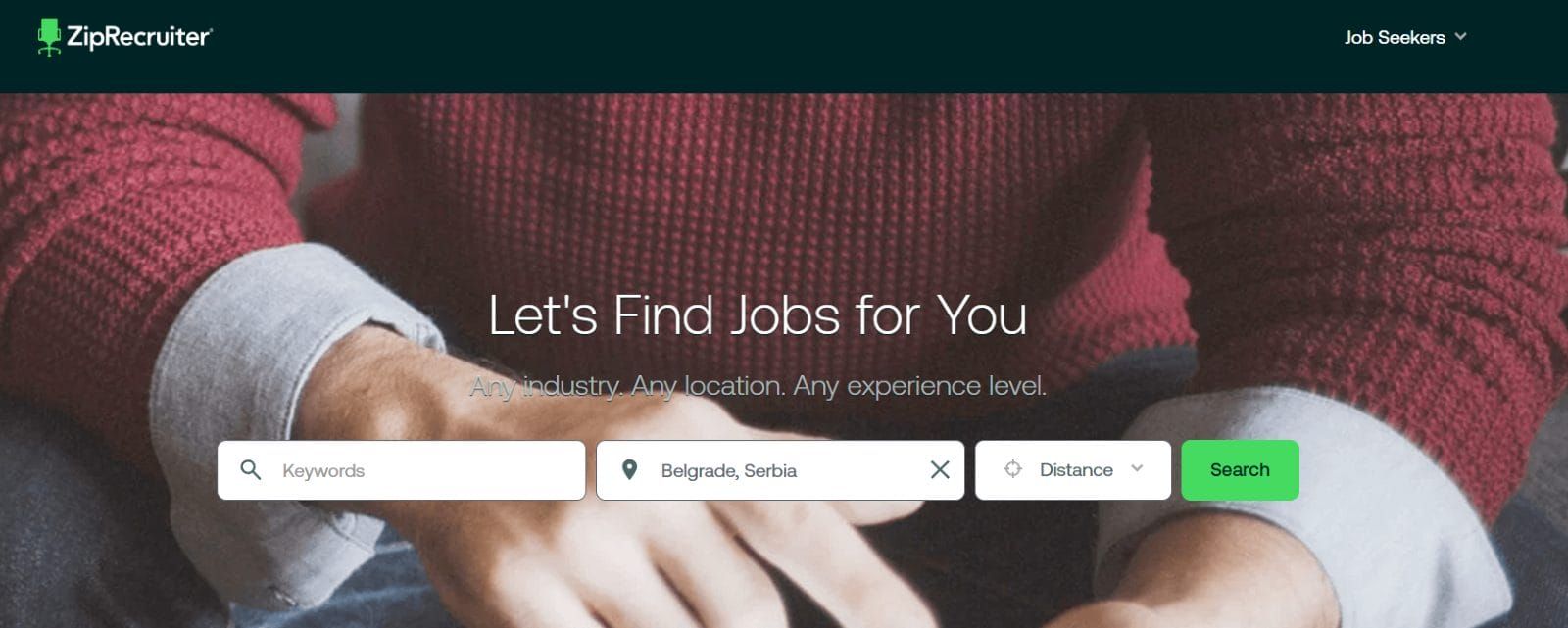The U.S. restaurant and food service industry is experiencing significant growth, with job opportunities at an all-time high. In fact, projections are indicating a workforce expansion of nearly 200,000 jobs by the end of 2024.
With such significant growth comes significant competition, both for employers and employees.
Landing the Cook job you desire or hiring the right individual for your establishment will require you to carefully prepare for your upcoming Cook interview.
That is why we created this guide for those who are seeking jobs and talented individuals to join their ranks: explore common interview questions, how to prepare for the interview and statistics related to the Cook roles in the U.S.
How To Prepare for a Cook Interview as an Employer
Here are actionable steps employers can take to ensure they identify and hire the right talent:
- Review the job description: Understand the specific qualifications and skills required for the Cook position. Tailor your interview questions to assess these traits effectively.
- Prepare interview questions: Draft structured questions that evaluate the candidate’s experience, technical skills and cultural fit within your organization.
- Create a comfortable environment: Greet candidates warmly and establish a relaxed atmosphere to help them feel at ease, encouraging authentic responses.
- Highlight the opportunity: Emphasize your company’s strengths, culture and career growth opportunities to attract top talent.
- Avoid unlawful questions: Steer clear of inquiries about age, marital status, disabilities or salary history to ensure compliance with legal guidelines.
How To Prepare for a Cook Interview as an Applicant
If you’re the one applying for the job, proper preparation is essential to making a lasting impression on your interviewer. Use these steps to ensure you stand out:
- Review what’s on the job posting: Understand the specific responsibilities of the role. Highlight your qualifications and demonstrate how your skills align with the job requirements.
- Research the company and the position: Learn about the company’s values, culture, and history. Use this knowledge to showcase your genuine interest and align your responses with their mission.
- Prepare answers for common interview questions: Reflect on typical questions such as:
- “Why do you want to work here?”
- “What are your greatest strengths and weaknesses?”
- “What is your experience in handling menu development or team management?”
- Practice delivering responses: Rehearse your answers to common interview questions. Focus on being clear, concise and confident to ensure a strong impression during the interview.
- Dress professionally: Make a positive first impression by dressing appropriately for the role and industry standards.
Questions To Avoid Asking as an Employer
When conducting a job interview, employers must exercise caution to ensure compliance with legal guidelines and avoid discriminatory practices. While small talk may seem harmless, certain topics are strictly off-limits and could lead to legal issues.
It’s essential to focus on the applicant’s professional qualifications and avoid any questions related to personal characteristics such as race, sex, religion, national origin or age.
The U.S. Equal Employment Opportunity Commission provides clear guidance on prohibited questions, ensuring a fair and equitable hiring process.
Some of these questions are:
- “What is your origin?”
- “Are you married?”
- “How old are you?”
- “Do you have any children and do you plan to have a family?”
- “Do you have a disability?”
- “How much do you currently make?”
General Interview Questions for Employers and Applicants
Whether you’re an employer searching for the right Cook to join your team or an individual eager to learn what the interviews look like, the questions below will help you get a better idea of what to expect.
1. Can you tell me about yourself?
For employers: This question allows you to get a glimpse of the candidate’s background, experiences, and how they relate to the position they’re applying for.
For applicants: Provide a concise summary of your professional background and relevant experiences. Highlight key skills and achievements that are pertinent to the job you’re seeking.
Example answer: “I’ve worked in kitchens for the past six years, specializing in prepping and cooking high-quality entrees for busy dinner services. In my previous role, I implemented a more efficient inventory system that reduced food waste by 20% and saved costs.”
2. Why do you want to work here?
For employers: This question helps you understand the candidate’s motivation, values, and whether they’ve researched your company.
For applicants: Express your interest in the company’s values, culture, and the specific aspects of the job that appeal to you. Emphasize how your skills and aspirations align with the company’s goals.
Example answer: “I admire your restaurant’s focus on sustainability and locally sourced ingredients. I’m passionate about creating dishes that highlight fresh, local produce and I feel my experience with seasonal menus aligns with your mission.”
3. What interests you the most about this job?
For employers: This question probes the candidate’s understanding of the role and their level of enthusiasm for it.
For applicants: Discuss the aspects of the job that excite you, such as opportunities for growth, the chance to apply your skills, or contributing to the company’s success. Show how your interest can benefit the employer.
Example answer: “I’m excited about the opportunity to work in a creative kitchen where innovation is encouraged. I’m particularly interested in learning new techniques and contributing my ideas to the menu.”
4. Give an example of one top strength and one top weakness.
For employers: This question assesses the applicant’s self-awareness and honesty. It helps you understand their ability to recognize areas for improvement and build on their strengths.
For applicants: Highlight a significant strength that’s relevant to the job, providing an example of how it benefited a previous employer. As for the weakness, discuss one that you’ve actively worked on, demonstrating your commitment to personal development.
Example answer: “My greatest strength is my ability to multitask effectively in a fast-paced environment. For example, during a busy dinner service, I managed multiple stations without compromising food quality.
My weakness is taking on too much at once, but I’ve been working on this by prioritizing tasks and asking for help when necessary.”
5. Where do you see yourself in three years?
For employers: This question gauges the candidate’s long-term career goals and whether they align with the company’s trajectory. It helps you assess if they’re likely to stay with the organization.
For applicants: Discuss your aspirations within the context of the company, emphasizing how you plan to contribute and grow. Show your commitment to advancing your career while benefiting the employer.
Example answer: “In three years, I see myself advancing to a leadership role like Sous Chef. I want to deepen my skills and contribute to menu development while helping train and mentor junior team members.”
6. What is your greatest professional accomplishment?
For employers: This question allows you to learn about their past achievements and the impact they’ve had in previous roles, helping you gauge their potential contributions.
For applicants: Share a specific accomplishment that demonstrates your skills, determination, and ability to overcome challenges. Explain the positive outcomes and how this experience relates to the current job.
Example answer: “My proudest accomplishment was leading the kitchen team during a private event for 150 guests. I ensured smooth operations, delegated tasks and received excellent feedback from the client on both food quality and service.”
7. Tell me about a time you demonstrated leadership skills.
For employers: This question assesses the candidate’s leadership abilities and how they apply them in real situations. It provides insights into their interpersonal and problem-solving skills.
For applicants: Describe a situation where you took on a leadership role, detailing the actions you took, the challenges you faced and the results achieved.
Example answer: “When our head chef was unavailable, I stepped up to lead the team during a busy Friday night service. I delegated tasks based on everyone’s strengths, kept communication clear and ensured all orders went out on time. It was a challenge, but the team pulled through and we received positive customer reviews.”
8. What do you like the most about this job? What do you think might pose an issue?
For employers: This question evaluates the candidate’s understanding of the job and the potential challenges it entails. It also reveals whether they’ve considered both the positive and challenging aspects.
For applicants: Discuss the aspects of the job that you find appealing and align with your skills and interests. Mention a challenge you foresee but emphasize how you’re prepared to address it, showcasing your problem-solving abilities.
Example answer: “I’m drawn to the opportunity to work with your talented team and contribute to the creativity of your menu. A potential challenge could be adapting to a new kitchen workflow, but I’m confident that my adaptability and quick learning will help me fit in smoothly.”
9. How do you plan to achieve your career goals?
For employers: This question assesses their ambition and whether their career plans align with the job they’re applying for. It helps you gauge their commitment to growth.
For applicants: Explain your career aspirations and the steps you’re taking or planning to take to achieve them. Emphasize how the current job fits into your career trajectory and benefits both you and the employer.
Example answer: “I plan to advance my career by building on my technical skills, taking leadership training courses and learning from experienced chefs. I’m excited to join a team where I can grow and contribute to the success of the kitchen.”
10. Do you have any questions for me?
For employers: This question allows you to see if the candidate did their homework about the company and the role.
For applicants: Prepare thoughtful questions about the company, team dynamics or the role itself. It shows your enthusiasm and desire to understand how you can contribute to the organization’s success.
Example answer: “Yes, I’d like to know more about your menu development process. How involved is the kitchen team in contributing new ideas or seasonal dishes?”
Role-Specific Questions for a Cook Interview
These targeted questions ensure both employers and applicants address the critical aspects of the Cook role:
1. What did your education and hands-on training entail? Do you hold any certificates?
For employers: This question ensures the candidate’s qualifications align with the specific requirements of the position.
For applicants: Summarize your culinary education, emphasizing relevant degrees, hands-on training, and acquired skills. Mention certificates and their contribution to your qualifications.
Example answer: “I completed a two-year culinary program where I specialized in French cuisine. During my internship at a fine dining restaurant, I gained hands-on experience in creating sauces and desserts. I also hold a ServSafe certification, which ensures I maintain proper food safety standards.”
2. What is your experience purchasing ingredients and building a budget?
For employers: This question evaluates the candidate’s ability to work within a budget and negotiate with suppliers.
For applicants: Discuss instances where you sourced quality ingredients within budget constraints, highlighting your negotiation skills and commitment to maintaining high standards.
Example answer: “I was responsible for sourcing fresh produce and proteins for a 150-seat restaurant. By negotiating with local suppliers, I secured high-quality ingredients while keeping costs within budget, reducing food expenses by 10% over six months.”
3. Did you develop the menu items in your previous or current role?
For employers: This question evaluates the candidate’s ability to innovate, adapt to customer preferences, and contribute to the culinary identity of the establishment.
For applicants: Mention your involvement in menu development and collaboration with the culinary team. Highlight your efforts to align menu items with customer preferences and market trends.
Example answer: “In my previous role, I helped develop a seasonal menu featuring locally sourced ingredients. I collaborated with the Head Chef to design three new appetizers that became customer favorites and increased sales during that quarter.”
4. Have you managed restaurant staff before? How many employees reported to you?
For employers: This question provides insights into the candidate’s capacity to maintain consistency and quality in a busy kitchen environment.
For applicants: Describe how you ensure consistency and quality while managing the challenges of a busy kitchen environment.
Example answer: “I focus on preparation and communication. I ensure all mise en place is ready before service begins and I maintain constant communication with the team to avoid mistakes. During high-volume service, I prioritize organization and double-check plating to ensure quality.”
5. Are you up to date on common food industry trends?
For employers: This question evaluates the applicant’s ability to innovate, contribute fresh ideas, and ensure the establishment remains relevant in a competitive market.
For applicants: Share your proactive approach to staying informed about food industry trends — such as reading publications — to showcase your commitment to innovation in your role.
Example answer: “I stay current by following culinary publications and attending local food expos. Recently, I’ve been exploring plant-based cuisine trends and incorporating those techniques into my dishes to meet growing customer demand.”
Cook Statistics in the United States
- Median salary for Cooks: According to the most data from the Bureau of Labor Statistics, the median annual wage for Restaurant Cooks is $36,060.
- Median wage for Cooks: Recent government data shows that the median hourly wage for Cooks was $17.34.
- Employment growth projection: The employment of Restaurant Cooks is projected to grow 6% from 2023 to 2033, faster than the average for all occupations.
- Total employment of Cooks: In 2023, there were about 2,759,200 Cook positions across various industries in the U.S.
- Projected job openings for Cooks: Approximately 441,400 job openings for Cooks are projected each year, on average, over the decade from 2023 to 2033.
- Industry employment share: Food preparation and serving-related occupations accounted for 8.7% of total U.S. employment in May 2023, with 13.2 million jobs.
Where To Find Cook Jobs
The culinary industry offers a wealth of opportunities for cooks at all experience levels. With the right platform, you can discover positions tailored to your skills and aspirations.
Whether you're seeking a role in a high-end restaurant, a cozy café or a large hotel chain, job boards provide the connections you need to land your next position.
Below are the top five platforms for finding Cook jobs, starting with OysterLink (a specialized hospitality job board) followed by its leading competitors.
Each platform has unique features to suit various job seekers' needs.
1. OysterLink

OysterLink is the leading platform for restaurant and hospitality professionals. It offers tailored job postings, salary insights, and resources to help cooks and chefs excel in their careers.
Pros of using OysterLink to find Cook jobs:
- Exclusive focus on the hospitality industry, making job searches highly relevant
- Comprehensive resources, including salary benchmarks and career guides
- User-friendly interface with filters for roles, locations and experience levels
2. Indeed

One of the most popular job boards globally, Indeed offers a wide variety of job listings, including cook roles across all types of establishments.
| Pros | Cons |
| Massive database with listings from across the U.S. | Generalized job postings may require extra effort to find relevant roles |
| Resume upload feature for quick applications | Sponsored listings often overshadow organic results |
| Salary comparison tools to help evaluate offers | Frequent emails may overwhelm users |
3. Culinary Agents

A platform dedicated to the hospitality and food service industries, Culinary Agents connects employers with qualified culinary professionals.
| Pros | Cons |
| Industry-specific focus with tailored opportunities for Cooks and Chefs | Limited to specific regions, reducing opportunities for some users |
| Networking tools to connect with professionals and mentors | Requires creating a profile to apply for jobs |
| Access to career advice and event listings for the culinary community | Paid premium features may deter casual users |
4. Glassdoor

Glassdoor combines job listings with company reviews and salary data, giving job seekers a transparent view of potential employers.
| Pros | Cons |
| Detailed company reviews and ratings for informed decision-making | Limited industry-specific filters for hospitality jobs |
| Salary insights and interview feedback from previous candidates | User reviews can sometimes be unreliable or outdated |
| Mobile app for job searching on the go | Account creation required to access full platform features |
5. ZipRecruiter

ZipRecruiter simplifies job searching by matching candidates to roles and allowing employers to scout potential hires.
| Pros | Cons |
| AI-driven job recommendations tailored to your profile | Not as specialized for culinary roles as other platforms |
| Easy application process with one-click apply for many listings | Free access is limited; some features require paid plans |
| Employer outreach feature that increases visibility for candidates | Sponsored ads can dominate search results |
Find and Post Cook Jobs With OysterLink
OysterLink is a comprehensive hospitality platform for both employees and applicants. As a Cook, you can discover tailored opportunities that match your skills and aspirations, supported by resources like salary insights and career guides to help you stand out.
For employers, OysterLink offers access to a pool of qualified professionals, helping you find the perfect candidate to improve the culinary operations of your establishment.
Whether you're looking to hire top talent or land your dream role, OysterLink is here to help you raise your establishment or career to the next level.


.png)

.png)
.jpg)